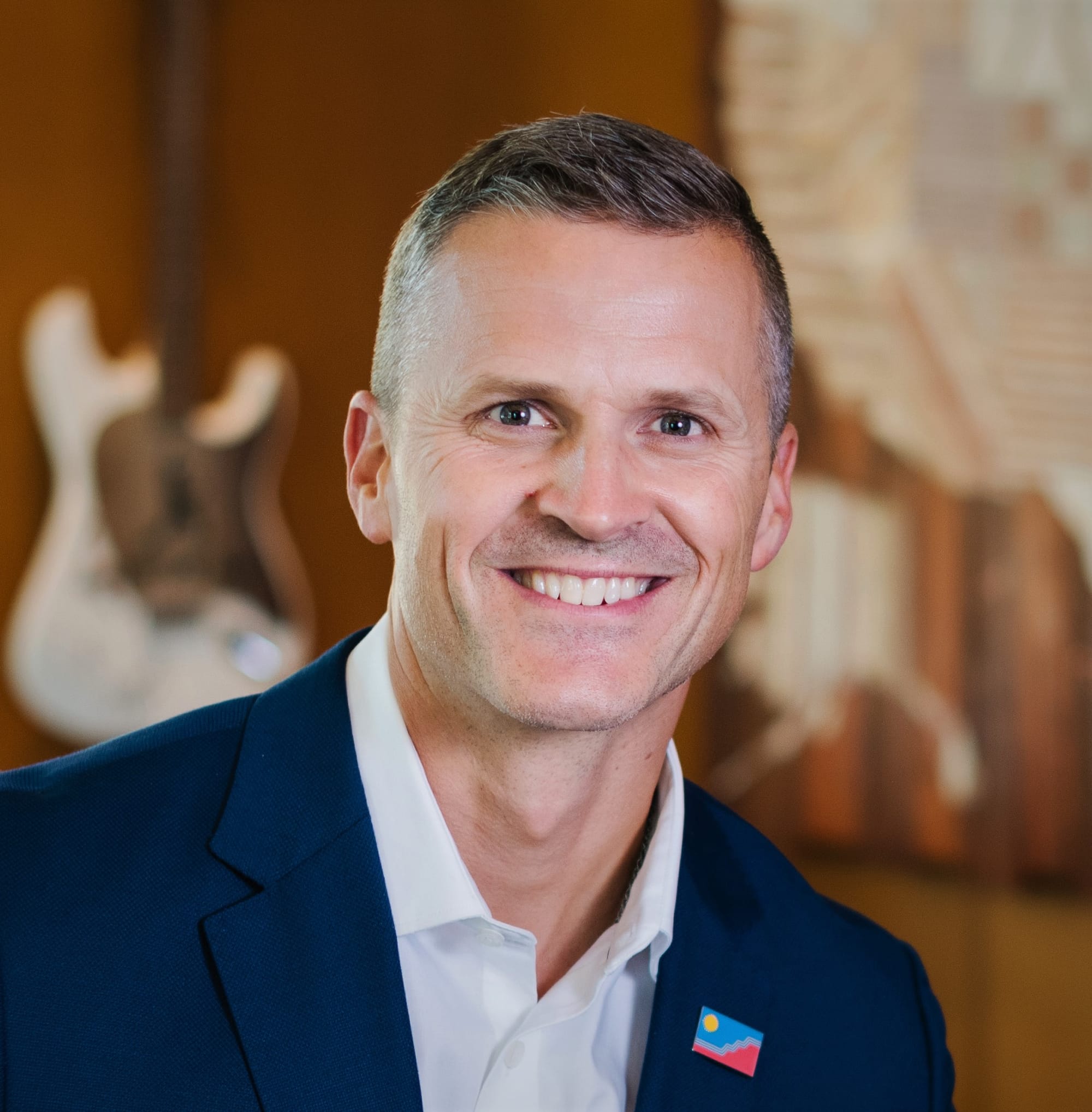Simplified: Mayor Paul TenHaken is entering his sixth year leading the city with a continued focus on public safety, housing and ensuring Sioux Falls is appropriately managing its growth as a city. He sat down with Sioux Falls Simplified to get into the specifics of what he expects the city will be working on in 2024.
Why it matters
- The city saw an influx of federal dollars during the pandemic, but much of that money is gone or already spoken for at this point. TenHaken predicts 2024 will be a "softer" year economically.
- On the finance side, he is also concerned about the local impact if sales tax on groceries is eliminated. It's something that could become a reality if voters pass a proposed statewide ballot measure in November, and the mayor said it's an "elephant in the room" that would significantly impede the city's ability to serve constituents.
- Beyond the budget, this year is going to be one to watch the parks and recreation department, TenHaken said – especially with big things like Jacobson Plaza construction, a new pool at McKennan Park, the Barb Iverson Skate Plaza and plans to redo some other city pools.
"There's just some good things happening in parks and rec," TenHaken said. "That's a quality of life issue, and that's why you have the people moving here tha tyou do to fill jobs – because we're creating a very livable community."
What other big topics are on the mayor's mind?
The highlights: affordable housing, managing growth, recruiting police officers, news on the Riverline District, watching the childcare conversation and, as stated above, finances and parks.
Want more details? Here's a full recap of our conversation, Q&A style. TenHaken's responses reflect some minor edits for length and clarity.
Q: Let's start with housing. The city just this week announced a fund to help bring housing options to those with extremely low incomes–what do you expect to happen with that this year, and what should folks be watching?
TenHaken: The hope there is that we have some creative solutions that maybe haven't been thought of before targeted to that 30 to 40% AMI (area median income) range.
- The (total nearly $6 million fund) is made up of (American Rescue Plan Act) funds that we had leftover along with $4 million appropriated by the City Council.
- My hope is that maybe we would get two to four applications for that in the first quarter. The goal of that money is not to be sitting in city coffers, but to be put out and put to work. I would like to see dirt moving yet this year.
Housing is a continued game of just hitting singles, and I use that term a lot, but this will help a little bit and Kelly Nielson's affordable housing TIF will continue to have some impact.
One thing that's swimming against us is interest rates and supply chain issues. It's hard to find builders and projects that can fit that lower income range.
Q: Sioux Falls has seen tremendous growth in recent years–does that continue in 2024?
TenHaken: I don't see it slowing down, and I don't see it increasing. My crystal ball would say we'll be around the 5,000-person mark (increase) again this year.
- In 2020 and 2021, we saw some really big growth, and we're still above our historical trends by a couple percentage points a year. I don't see it changing at all.
South Dakota seems to be one of those havens where people, for a variety of reasons, have us on their radar.
Q: On the topic of public safety, a lot has happened in the last year – passage of the truth in sentencing law, statewide collaboration, a new public safety training center – what's next?
TenHaken: Most of the time our violent crimes ... have a narcotics thread through them.
- I know it's a controversial topic, but I'm not a supporter of any sort of legalized vices in our community right now, including recreational marijuana. If there's action and movement on that, I think you're going to see me being very vocal in my thoughts on that.
Another common thread we see with crime is co-occurring issues with mental illness. While not directly public safety related, a lot of these things kinda have threads through them, and that's an issue of how we continue to work with The Link.
- The Link has been open two and a half years now. I think it's doing some things great, and it's doing other things not so great. We just want to make sure we're serving the needs of all the partners – that's going to be a focus in the next year.
I also can't overstate this enough, but the recruiting and retention landscape for cops is very, very challenging. And you can't have a safe community when you don't have men and women that want to be cops anymore.
- You can't use AI to police. You need to have people.
- There's just a lot of focus we're going to put on recruiting and retention.
Q: Let's talk development. There are some massive projects going up across the city right now – What do you expect we’ll see when it comes to building permits in 2024?
TenHaken: In 2022 we did almost $2 billion, and last year it was a pretty significant downturn from that, but still north of $1 billion.
I would guess we'll be above a billion again this year, but what we saw in 2022 is we just had some massive big-ticket items like airport parking ramps, the Steel District, Cherapa II. Where I sit right now, I don't know of any of those huge, massive projects that are on the radar.
- I expect this year to be a B+ in terms of our grade in what we'll see from a construction standpoint.
- I also see a little bit of a slowdown in residential transactions, so what that usually means is we see an uptick in remodel permits – people deciding not to move and just invest in existing property.
Q: Can we also talk about the downtown parking ramp–this has been a perennial thing in your time as mayor, is this the year we see this property sell?
TenHaken: If I'm being candid, I think that'd be a very lofty goal because, per my earlier statements, the interest rates and some of the decisions that have been made at the federal level have not helped the development climate.
It's costing the taxpayers exactly zero cents to have that ramp unfinished ... so that's why we're not in a hurry.
Q: One more question on the development side, it was almost exactly a year ago the city announced the potential Riverline District. What kind of feedback have you heard? Is the city (or another entity) ready to purchase that land?
TenHaken: We'll have some news soon on the Riverline District as part of a larger 2050 vision that our administration has.
- (Because of extensions to the initial purchase agreement), we have plenty of time yet to strike an agreement on the purchase of that land.
In the first quarter of this year, the community's going to hear about a pretty bold vision of what we'd like to see.
Q: Let's talk childcare.
You’ve voiced support for things like the childcare collaborative and finding innovative solutions, but the city has yet to really invest money to back that up.
Do you see the city playing a role in solving the childcare crisis in 2024? What might that look like?
TenHaken: I see us playing a role, absolutely. I think what the role looks like – there's a lot of philosophical differences on that.
- Unfortunately this is not a challenge that is easily solved wiht money. A lot of times people assume that the government putting money into something is a good fix for it, but that creates challenges with inflation when the government falsely props up an economy.
We're obviously at the table. ... Sioux Falls, Madison, Mitchell, Murdo – we're all experiencing the same thing.
- I'm a little more interested in global solutions than shotgun solutions for our community.
- I'll be watching the legislature. ... This is going to be a big one in 2024 for sure.


